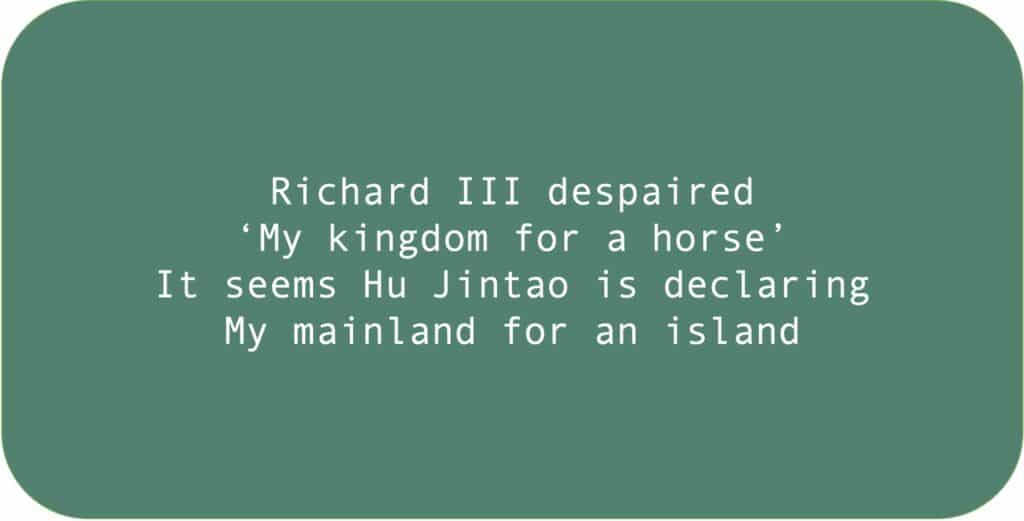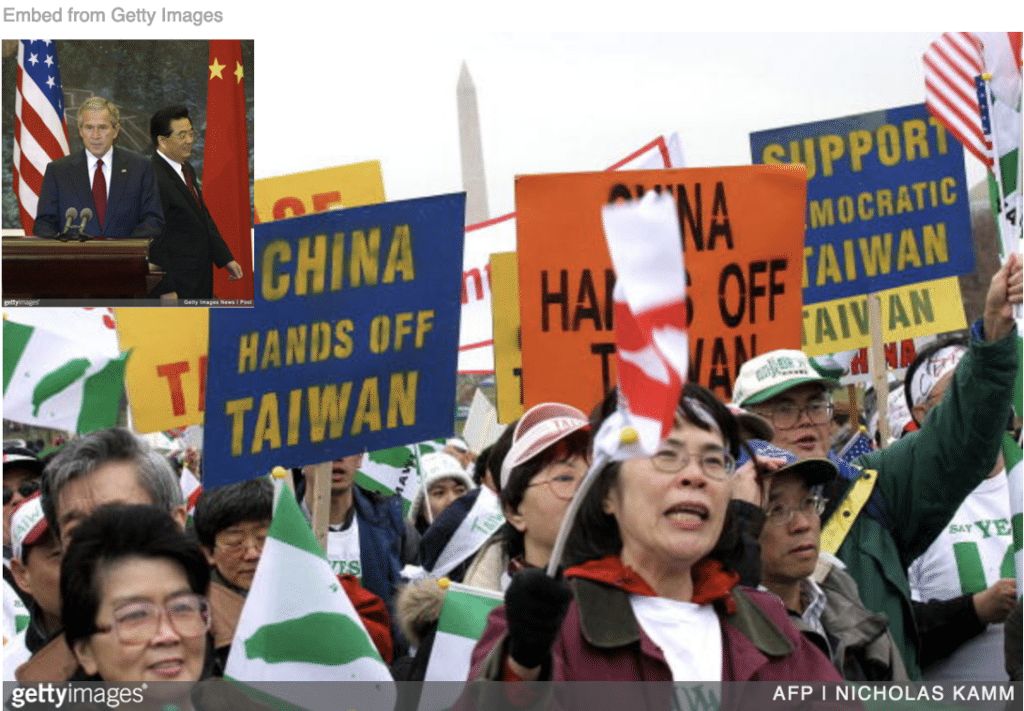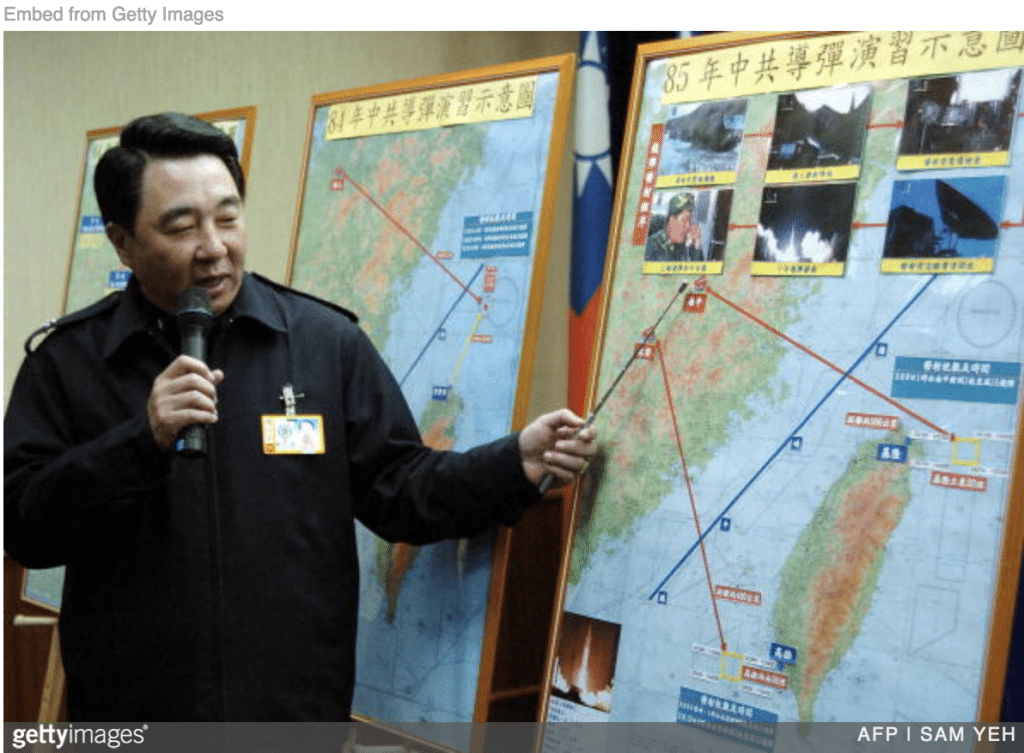
China vs. Taiwan
Cold War tensions are rising between the United States and China over Taiwan. I published a commentary a few months ago delineating why.
In short, I cited the Cold War tensions between the US and the former Soviet Union over Cuba. Of course, that Cuban Missile Crisis escalated to the brink of nuclear war.
The Soviet Union blinked and retreated from Cuba. But I posited that, this time, the US seems fated to blink and retreat from Taiwan. And that the US would do so notwithstanding its 51-year-old pledge to defend Taiwan against Chinese aggression.
The Taiwan Strait
Taiwan’s political status grew from crises in the 1950s between the Communist People’s Republic of China and the Nationalist Republic of China in Taiwan. And the Taiwan Strait has been the site of simmering tensions ever since.
Ironically, its strategic location moved the US to deploy troops and provide economic aid to Taiwan during the Cold War with the Soviet Union. But now, the ties that bind the US to Taiwan have become the bane of cordial relations between the US and China.
There has been occasional saber-rattling and military maneuvering. But both countries seem as committed to keeping this Cold War from turning hot as the US and the Soviet Union were.
US ambivalent support for Taiwan
China regards Taiwan as a renegade province. And no country (including the US) has ever denied China’s territorial claim over this self-governing island.
Yet, successive Taiwanese governments have pushed for independence. They have done so despite China’s claims. But theirs is a pyrrhic quest.
But, the Taiwan Relations Act 1979 has emboldened them. It calls for the US to help Taiwan
resist any resort to force or other forms of coercion [by China] that would jeopardize the security, or the social or economic system, of the people on Taiwan.
That’s why it might seem oxymoronic that the US has refused to support Taiwan’s drive for independence. To appease China, it has terminated diplomatic relations with Taiwan, recognizing only “one China and that Taiwan is part of China.”
For all these years, peace and stability across the Taiwan Strait have been predicated on China’s commitment to “firmly abide by the principles of peaceful re-unification of one country two systems.”
China’s economic rise is causing nuclear friction
China’s meteoric rise as a global economic power is formidable. It has enabled the financing of a military that rivals the US military. Naturally, its build-up is destabilizing the uneasy détente in this trilateral relationship.
Last March, China passed the Anti-Secession law. It grants China’s leaders legal cover to order its military to use any means necessary (including preemptive strikes) to prevent Taiwan from becoming an independent nation.

Taiwan’s leaders fear China is planning to seize political control by force. And China has the power now to squash Taiwan like a bug. At an international press conference last week, a senior general in the Chinese Army, Major General Zhu Chenghu, blithely declared that
If the Americans draw their missiles and position-guided ammunition onto the target zone on China’s territory, I think we will have to respond with nuclear weapons.
How’s that for saber-rattling? Never mind the manifest folly of taunting as if China is the only country with nuclear weapons.
Indeed, we’ve come to expect such idle bluster from North Korea, known for desperately seeking attention. Ironically, the US has relied on China to temper North Korea’s bluster. Yet China’s declaration constrained the US to condemn China as if it were condemning North Korea. The US called it “unfortunate [and] irresponsible.”
Notably, China’s foreign ministry spokesman attempted to distance political leaders from the general’s remarks. But, in doing so, he sounded even more bellicose. Because he reaffirmed China’s policy on Taiwan and then declared ominously that
We will never tolerate Taiwan independence; neither will we allow anybody with any means to separate Taiwan from the motherland.
Such gratuitous declarations give the impression that China is spoiling for a fight. After all, as indicated above, US policy has been entirely consistent with China’s efforts to prevent Taiwan from separating from the motherland. And every Chinese general and politician knows that the US has pledged to defend Taiwan only against attack by China.
What if China invades Taiwan?
Of course, if China is planning an attack, General Zhu’s remarks might be part of a psychological operation to test America’s resolve. And, given US involvement in Iraq and Afghanistan, China might see a strategic opportunity to strike with relative impunity.
I fear China’s strategic calculation in this regard would be correct. The US has grave concerns about China’s military build-up. It maintains that “peace and stability in the area [Taiwan Strait] are in the political, security, and economic interests of the United States.”

But if China invades, US security guarantees might be no more effective for Taiwan than British and French guarantees were for Poland in 1939. Indeed, in that event, I suspect the US would only issue a diplomatic reprimand and, perhaps, call for economic sanctions against China.
What is certain, however, is that the US will not engage China in a war over Taiwan. And China knows it!
Therefore, Taiwan seems fated to fall under China’s direct control. The only question is whether China will remain patient enough to accomplish its objective by political proxy (using Taiwan’s Opposition Party – the Kuomintang). Or whether China will finally exercise its military might and take the island by force.
Whatever the case, China’s victory is bound to be even more pyrrhic than Taiwan’s quest for independence.
China’s compromising need for oil
China is engaged in a two-pronged battle. This battle is for oil rights to fuel its economic and military expansion. On one front, just last Saturday, China declared that Japan’s decision to grant rights to a Japanese firm to drill for oil in the East China Sea impinges on its exclusive maritime rights and “makes conflict inevitable.”
Geopolitical experts warn that China’s unprecedented and unquenchable thirst for oil will destabilize its already strained bilateral relations with Japan, the US, and other rich countries. This thirst will also cause sustained increases in the price of oil, which will impose severe economic hardships on poor countries.
(This potential trigger for war comes amidst an ongoing schoolyard row between China and Japan over lingering hostilities stemming from World War II.)
On the other front, China’s “unsolicited bid to take over a US oil company” UNOCAL has unnerved the US. The US has vowed to block the bid, fearing “that China could reduce US energy supplies and threaten national security.” In response, China has vowed to retaliate against US companies in China if the US blocks China’s bid for the oil company.
And, so it goes. But as Michael Wessel, director of the US-China Economic and Security Review Commission, a congressional advisory body, conceded last Thursday:
The Chinese have Bush over a barrel now. … This is happening at the same time as outstanding major trade issues, the currency, textiles, intellectual property rights, the six-party talks with North Korea, at a time when the Bush administration is trying to moderate those conflicts.
Something’s gotta to give! Stay tuned…
Anonymous says
Given that the resources of the US are focused on the Middle East with limited success and no clear exit strategy, it seems the Bush administration will have little additional energies to manage the dynamics in Asia. These issues centered around the Taiwan Straight are arguably as significant for the economic and national security of the US than those of the Middle East, particularly in the long run. Perhaps this is why Bush was hosting the Indian PM Manmohan Singh this week.
Rage….
Anonymous says
This is a really scary situation. I think you are right that the Americans would never risk war with China over Taiwan. But I am not so sure that the Chinese are foolish enough to risk their economic development just to control Taiwan. Also, the Americans are not arming the Taiwenese just for show. They may give the Chinese more than they are bargaining for without the Americans.